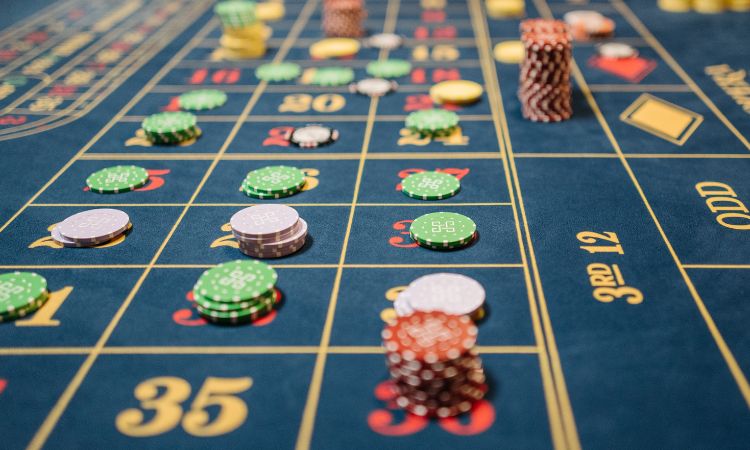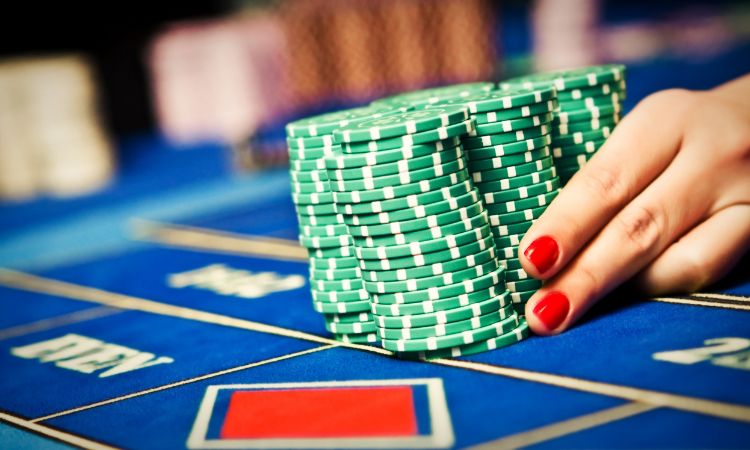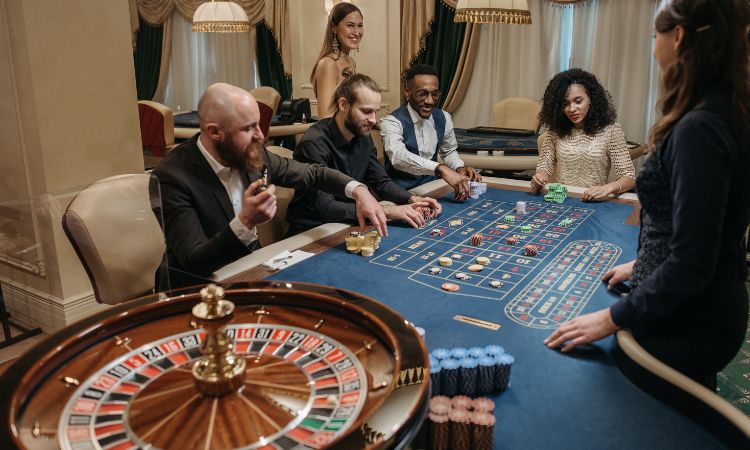Many gamblers have experienced the feeling of winning big at first and then gradually losing everything after many hours of playing. The question is: Why do you lose more easily the longer you play? Is it due to luck or are there other factors that influence it? In fact, psychological effects in betting play a huge role in making players lose control and fall into a long losing streak. This article by In 999 will specifically analyze the psychological mechanisms that make it harder for you to maintain your initial advantage the longer you play.
1. Understand the nature of betting and probability
1.1. Betting is a game of adverse probability
Most games in casinos or bookies have a winning rate that is tilted towards the system. Bookies always design the game to be profitable in the long run, called the house edge.
For example:
In European roulette, the house has an advantage of ~2.7%
In slot games, even if the RTP is high, the advantage is still tilted towards the casino
The longer you play, the more likely you are to “lose” money according to mathematical rules.
1.2. Players often misunderstand the “lucky streak”
Many people believe that if they are winning, they are “on a streak” and can continue to win. This is a probability fallacy because the outcome of each round is independent, unrelated to the previous outcome.

2. The “recovery psychology” effect makes players lose control
2.1. What is the recovery psychology?
After losing, players tend to continue playing in the hope of getting back the money they lost, usually by:
Double up the bet (Martingale)
Betting more recklessly
Not stopping even though they have exceeded their budget limit
2.2. Consequences of the recovery psychology
Players fall into a losing – recovering – losing cycle
Easily agitated and lose the ability to make rational decisions
This psychology is one of the main causes of heavy losses

3. Illusion of control and false beliefs
3.1. The “illusion of control” effect
Players often think they can:
“Read” the rules of the game
Adjust the results with skill or feeling
Intervene with unproven “tricks”, “strategies”
In games of pure chance such as slots, baccarat, roulette… no action of the player affects the results, but the illusion of control makes them continue to bet.
3.2. False belief in “probability rules”
For example:
If the coin lands heads 5 times in a row, the player thinks the next time will definitely land tails
In reality, each toss has the same probability
This belief makes the player continue to bet, even though there is no reasonable probability basis.

4. Fatigue and impaired decision-making ability
4.1. The longer you play, the more you lose your cool
After many hours of playing, players often:
Lose concentration
Misjudge situations
Make emotional decisions
Mental and physical fatigue makes you prone to making mistakes, especially in games that require calculation like poker or blackjack.
4.2. Lack of rest time makes emotions dominate behavior
When lacking rest, emotions easily dominate over reason:
Betting out of anger (tilt)
Trying to play to “get the feeling back”
Not stopping when necessary
This is why casinos often have no clocks or windows, so that players forget the time and continue playing without stopping.
5. The feeling of winning initially creates false expectations
5.1. Winning early does not reflect long-term results
Many players win big in the early stages and believe that they can continue to win easily. However:
This is only a short-term fluctuation
As you continue to play, the house edge will gradually “absorb” that amount of money
5.2. False expectations make players lose discipline
After making a profit, players often:
Bet bigger because they think they are “lucky”
Do not withdraw money, but continue playing with the expectation of more profit
Result: all winnings can be lost
6. How do bookmakers exploit player psychology?
6.1. Addictive interface design
Light effects, victory sounds make players excited
Small but frequent rewards help maintain the feeling of “almost winning”
6.2. Promotions and “reload bonuses”
Give bonuses to keep players depositing
Suggest “play a little more to reach the reward milestone”
All are tools to stimulate the psychology of playing longer, leading to a higher chance of losing.
7. How to control time and psychology when playing betting
7.1. Set time and betting limits
Specific playing time regulations (eg: 30 minutes/time)
Stop playing when you have lost more than the allowed amount
7.2. Know when to stop when you win
Withdraw part or all of your winnings after each session
Don’t let greed cloud your mind
7.3. Recognize signs of losing control
Feeling irritable, impatient
Trying to recover after losing
Don’t stop even though you’re tired
If you see the above signs, pause and re-evaluate your behavior.
The longer you play, the easier it is to lose in betting not only comes from mathematical probability, but also the result of a series of psychological effects on the player. From the psychology of recouping, the illusion of control to fatigue, all of which make it easy for you to fall into a losing cycle. To bet smartly and safely, players need to understand the nature of the game and manage time – emotions – finances scientifically.
See more:
